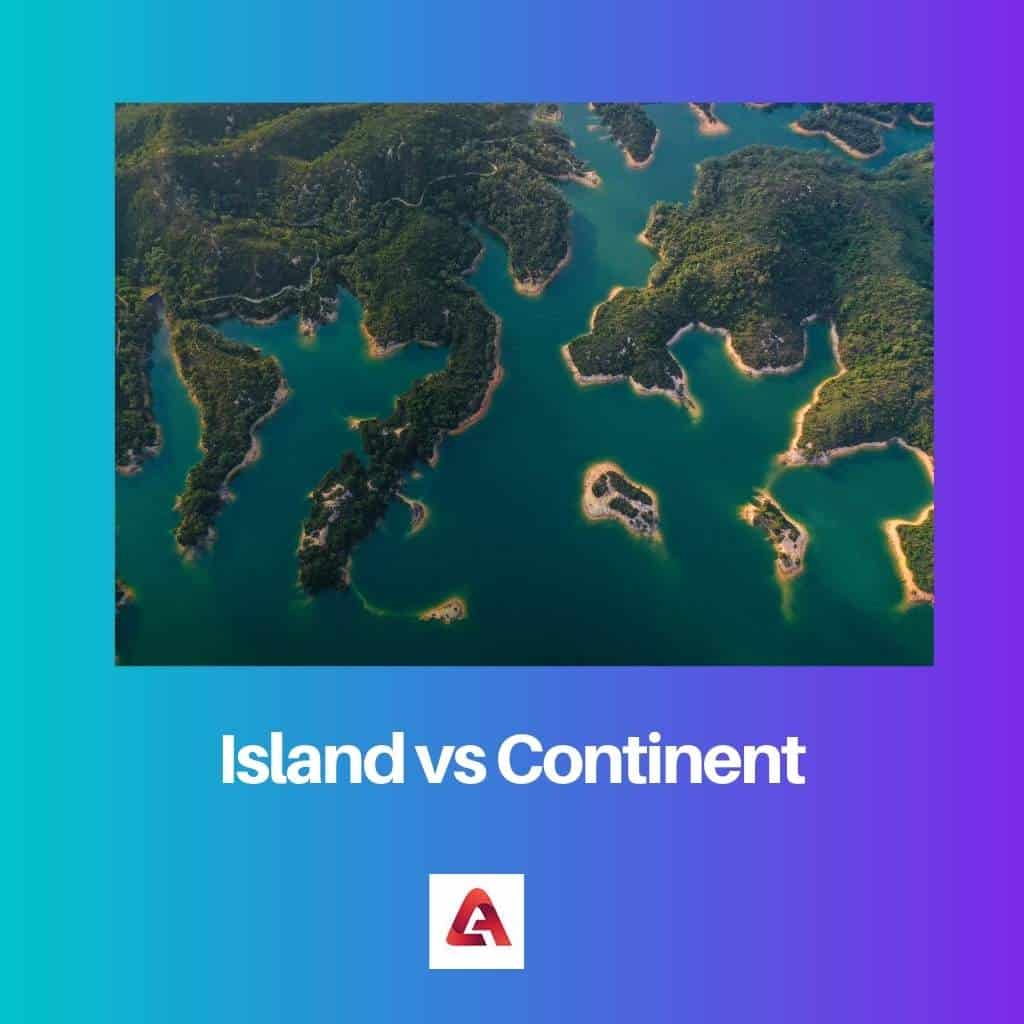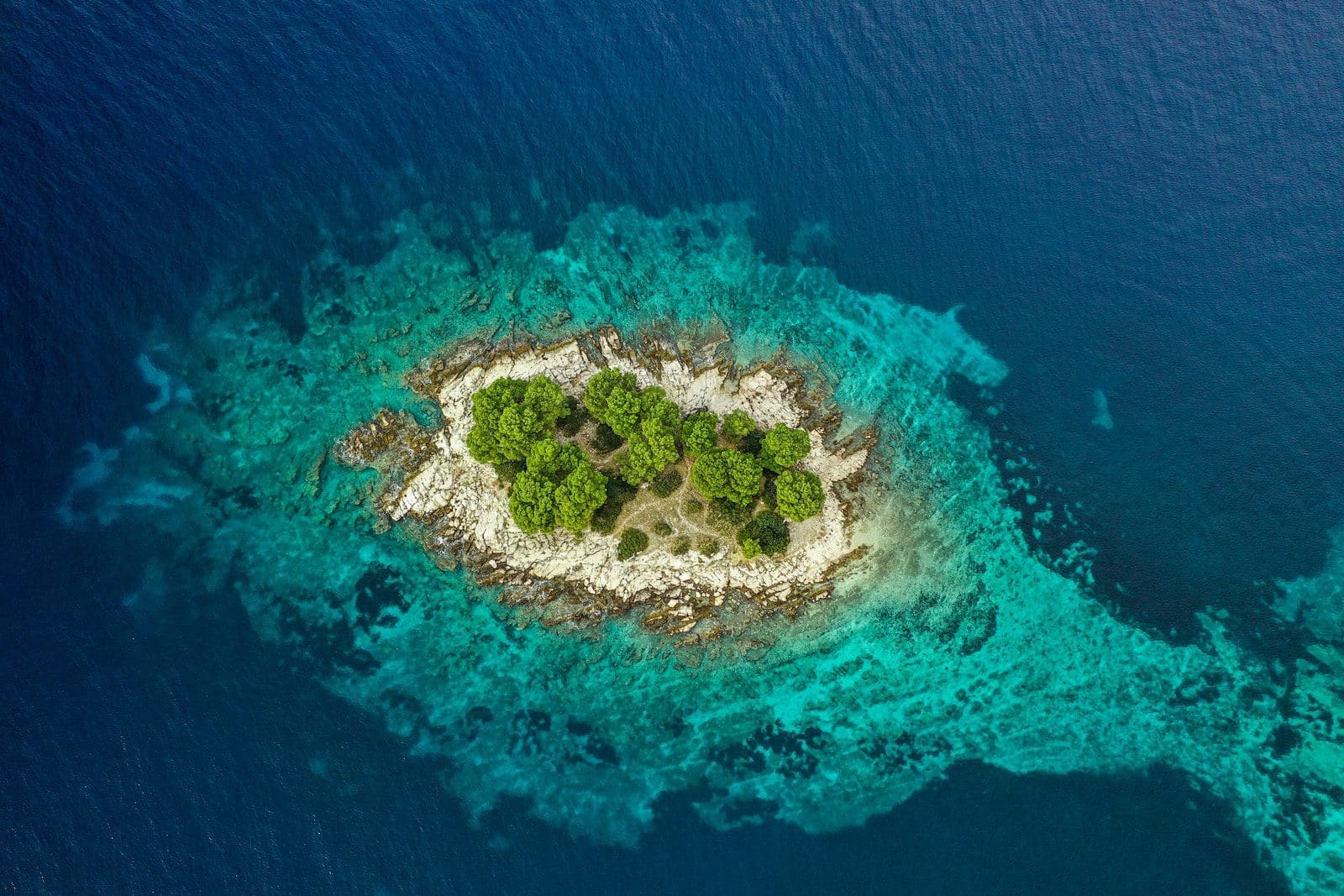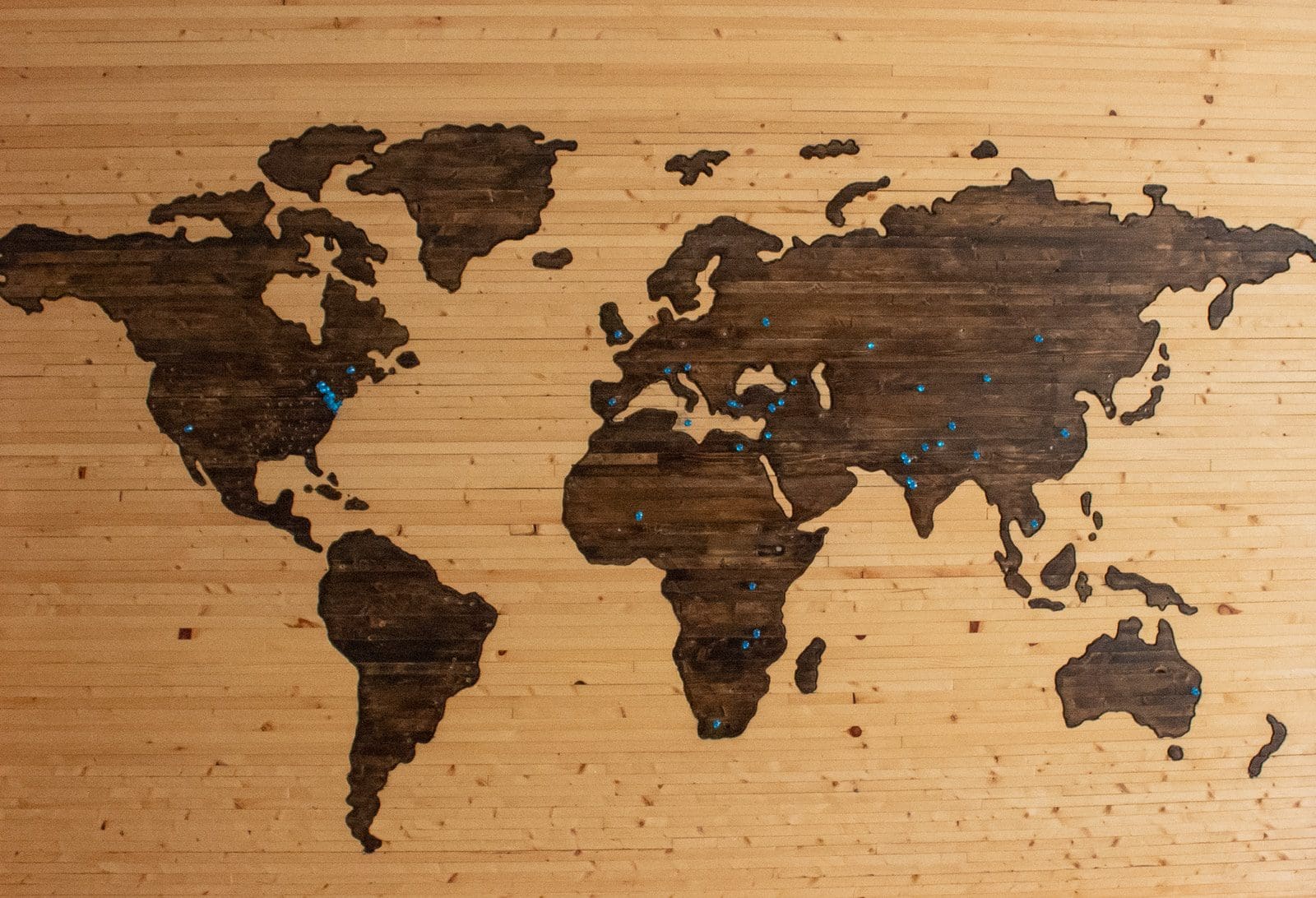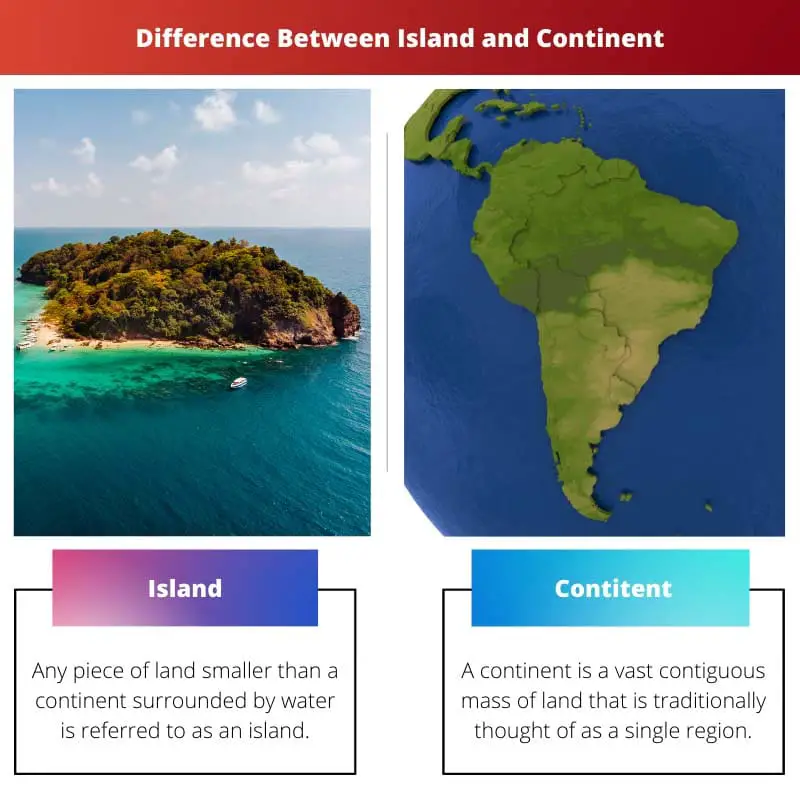It is very easy to understand which one is an island and which one is a continent by observing the map or globe. The main difference between these two phenomena is, indeed, their sizes.
Key Takeaways
- An island is a piece of land surrounded by water on all sides, while a continent is a large landmass physically connected to other land masses.
- Islands are smaller than continents and have a unique ecosystem, while continents are much larger and have diverse ecosystems.
- Islands are formed by volcanic activity or shifts in tectonic plates, while continents have been shaped by millions of years of geological processes.
Island vs Continent
The difference between Islands and Continents is the contrast in size between them. Continents can cover enormous areas of land and have various nations, while an island is a small landmass enclosed by bodies of water. Apart from the apparent size difference, continents differ from islands as they have a variety of landforms and a variety of fauna and flora. Since the landmass is so big, many people from various cultures will coexist within their borders on the same continent. At every given time, an island can only hold a small number of individuals.

An island, by definition, can be defined as a piece of land whose size can range from as small as 3,300 square feet to as huge as 836,330 sq miles and is surrounded by a water body, preferably sea or ocean, but sometimes it can be an enormous lake too.
A continent is a vast landmass segregated from other continents by oceans. Only geographical borders separate these continents, limiting their landmasses to a specific region.
Comparison Table
| Parameters of Comparison | Island | Continent |
|---|---|---|
| Definition | Any piece of land smaller than a continent surrounded by water is called an island. | A continent is a vast, contiguous mass of land traditionally considered a single region. |
| Number | Almost around 18,995 | 7 |
| Artificial Creation | It is possible with proper technology and resource. | Not possible (For now) |
| Size | Smaller when compared with Continent. | Biggest landmass on Earth. |
| Examples | Andaman and Nicobar Island; Borneo and Taiwan | Europe, Asia and North America |
What is Island?
An island is a portion of a sub-continental area enclosed by a water body, i.e., Ocean and seas. Islands can sometimes be surrounded by enormous lakes as well.
Continental islands are landmasses that are located on a continent’s continental shelf. An archipelago, such as the Philippines, is a collection of geographically or geologically linked islands.
The word island arises from the Old English word ‘iegland.’ From ‘ieg’ or ‘ig,’ both suggest ‘island’ when used alone, but when used with -‘land’ carrying the modern equivalent of Eiland “island” in Dutch and Eiland “small island” in German.
There are no particular size standards that help one to distinguish between an island and a continent. The largest island is Greenland which approximately covers over 2.1 million km sq.
Artificial islands are developed on previously established “low-tide elevations.” Low Tide Elevations have naturally formed patches of land that are surrounded by and above water at low tide.

What is a Continent?
A continent is an enormous landmass that is made up of numerous considerably smaller landmasses. The expected or anticipated land area coverage of the cumulative of all continents is approximately 148,647,000 square kilometres or 57,393,000 square miles.
Up to seven regions are known as continents of the world and are defined mainly by consensus rather than any specific criterion.
The continent is the term that belongs to areas of continental crust present on the continental plates. However, they incorporate pieces of continents, like Madagascar, that are not regarded as continents.
Oceanic Island is the term used to define the piece of the crust which comes up to the surface from the floors of the water bodies, i.e., oceans.

Main Differences Between Island and Continent
- When compared with a continent, an island is smaller. The continents are considered to be the biggest landmass on this planet.
- Examples of islands are Taiwan, Sakhalin, and Java. Examples of Continents are Asia, South America, and Europe.

- https://books.google.com/books?hl=en&lr=&id=yJNcAAAAcAAJ&oi=fnd&pg=PA199&dq=what+is+continent+in+geography&ots=UQIwpilE8w&sig=gDm1M06gR5eOuAxHRALxHX0yG6A
- https://rgs-ibg.onlinelibrary.wiley.com/doi/abs/10.1111/area.12546

I can’t believe I needed an article to understand this. It is quite complicated to differentiate and know the differences between an island and a continent.
Especially because the definition of islands varies with the scientific community. For some definitions, Australia is an island. For others, it is a continent.
I found this article quite dull. It’s quite clear to me. I don’t understand why so many people find it difficult to distinguish.
You are so lucky to have such a keen eye for geography. Not everyone does.
I found it hilarious that someone might confuse the two. It’s quite clear. This article is only worth it for the comparison table.
Yes, almost as funny as someone thinking North America is an island!
It’s quite interesting that a certain definition includes a minimum of 3,300 square feet for an island. It makes it easy for someone to be mistaken.
I don’t find this article particularly helpful. It is full of things I already know.
Yeah, it’s important that the article includes so many references. That can be quite helpful to other people.
Not everyone is as intelligent as you, Zachary.
This article is quite controversial. It is difficult to understand the specific definition of an island.
Nobody seems to agree on what the definitions are.
Yes, what is quite clear to some can be quite confusing to others.
I am amazed at the huge difference between these two landmasses that I never noticed before. I am grateful for the clear explanation that has been given about the differences and references through the historical origins of the words. And that artificial islands are also possible in the future.
Yes it’s amazing how a simple map can show so much. By the way, artificial islands are already being built in Dubai.
This article is really quite informative.
I found it quite boring, really.
I agree with you, it certainly wasn’t a thrilling read.
This article has brought such clarity to me. I am extremely grateful for the information and the references.
Me too. It’s good to see so many different sources listed.
I found the tone of the article quite lovely. Very educational and not at all overly complex.
Couldn’t agree more with you, Owen.
I found it quite surprising to see how much debate there is about the definition of these terms. One would think they are simple things to understand.
It’s not so easy to define it scientifically.
I was quite surprised by it too, Russell.